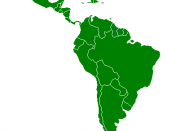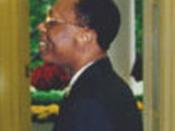The Role of the OAS: The Need for Increased Capacity for Democratic Institution Building Introduction Latin America has been a world leader in democratization, preceding the global "third wave" of democracy by nearly a decade. Recent challenges to democratization have been seen in Haiti and Peru whose governments were overthrown by coups and also in Venezuela, where an attempted coup undermined democratic governance in the region.
The OAS has recently become more aggressive in its aim to promote and protect democratic institutions. Critics have suggested that the OAS should develop stringent protocols for the enforcement of democracy in sovereign states. While the historical evolution of the OAS points that the climate is favorable for democratic institution building and inter-American cooperation, critics note that the role of the OAS has been underserved because the institution is lacking a political framework and specific procedures to consecrate and enforce its policies.
Historical Background The OAS "is the only international organization for which democracy is a condition of membership and an objective according to its Charter."(Villagran
de Leon, 5) The preamble to its original Charter "proclaim[s] that representative democracy is an indispensable condition for the stability, peace, and development of the region" Although the lofty goal of democracy was an aim, Latin America witnessed a reversal of participatory governance in the early 1950s and 1960s with the uprise of anti-Communist military governments. Inter-American cooperation to promote democracy was stifled because "the promotion of democracy remained within the jurisdiction of states" (Villagran de Leon, 7) The Cold War further impeded the role of the OAS because of the prevalent view that international organizations did not have the legitimacy to infringe on political developments in sovereign states. Domestic and international factors need be considered.
Domestically, member states' democratic institutions had been constrained by the principles of...


